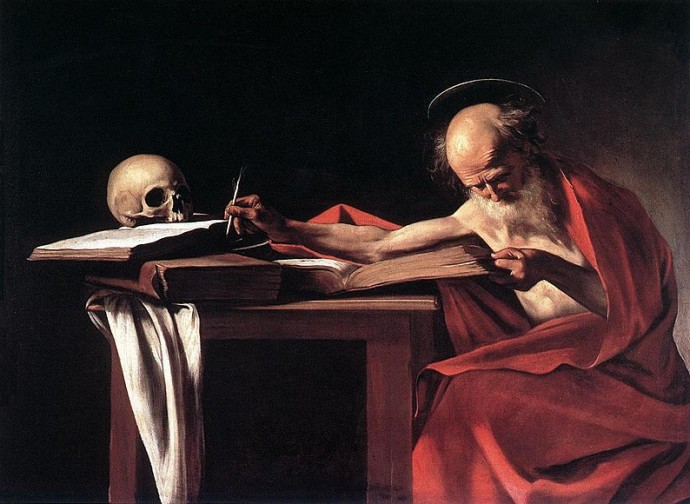Saint Jerome
“To ignore the Scriptures is to ignore Christ,” said Saint Jerome (347-420), one of the most erudite men of his time, to whom all Christianity owes much. Of impetuous character, he vigorously opposed Arianism and all other forms of heresy....

“To ignore the Scriptures is to ignore Christ,” said Saint Jerome (347-420), one of the most erudite men of his time, to whom all Christianity owes much. Of impetuous character, he vigorously opposed Arianism and all other forms of heresy. But he was also prone to addressing with sharp words saints such as Augustine, Ambrose and Basil the Great, without however forfeiting their friendship.
Pope Damasus urged him to revise some ancient Latin versions of the Bible, which were not official. Jerome carried out the task with great diligence, using the best texts in the original languages of the Old and New Testament and comparing them with the translations already available, including the Septuagint (Seventy), the oldest version in Greek. He studied Greek in Constantinople under the guidance of St Gregory of Nazianzus. And he learned Hebrew and Aramaic in Bethlehem, where he moved after leaving Rome. It took 23 years for him to complete the Vulgate, the Latin translation of the Bible that the Church used until the 20th century, when Paul VI - towards the conclusion of the Second Vatican Council - commissioned a revision.
Yet Holy Scripture had not always been his main passion. On the contrary. Jerome himself recounts that even in the Holy Land, where he had gone “to fight for Christ”, he was initially more attracted by the Latin classics like Cicero and Plautus than by the Bible, to the point of saying that the Books of the Prophets made him nauseous. “It was my blindness that prevented me from seeing the light, and I deluded myself that the fault was not of my eyes, but of the sun”, he wrote in the XXII Epistle, where he reported on the celestial reproach he received during a mystical experience: “You are a Ciceronian, you, not a Christian!” From there he understood that the devil had tried to divert him from the Bible and dedicated himself body and soul, “with ardour”, to the plan to which God called him.
To soften his character he did penance continuously and used to strike himself with a stone. During his period in Rome, he became the spiritual father of a group of virgins and widows eager to dedicate themselves to the ascetic life: among them were the noble Marcella, Paola and her daughters Eustochium and Blesilla. Today we venerate them as saints. In addition to a large number of letters and works against heresies, he wrote on the example of Suetonius the De Viris Illustribus, a collection of 135 short biographies of characters from the first four centuries of Christianity, to show what impetus the Christian faith had already given to culture. Of the saints he said: “We honour the saints to worship Him of whom they are witnesses, we honour the servants so that the honour of the servants may be reflected on the Master”. In 1298 he was proclaimed Doctor of the Church and thus became one of the first four to receive this title, together with Augustine, Ambrose and Gregory the Great.
Patron of: archaeologists, librarians, scholars, translators
Learn more:
Opera omnia (texts in Latin and English)
